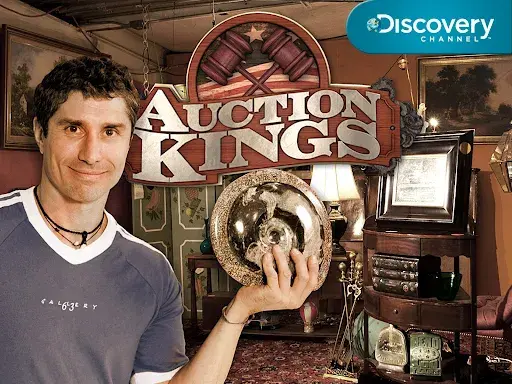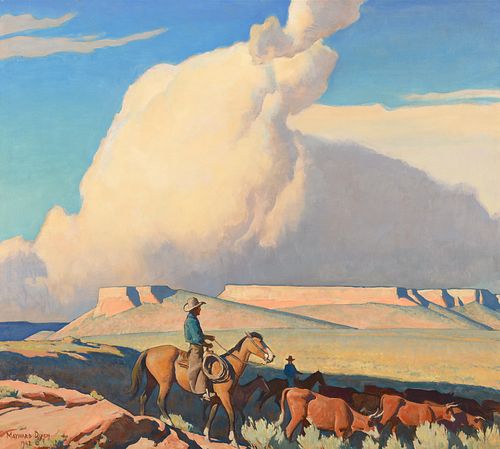Collecting Baseball Cards With Heritage Auctions’ Chris Ivy
“It’s a passion that allows for an enormous amount of personal expression,” says Ivy of collecting in the category.

“Play ball!” For many sports enthusiasts, there are no sweeter words in the world. After a long delay, the Major League Baseball season has finally begun, providing a sliver of “normalcy” to this most unprecedented summer and year. To celebrate the 2020 debut of “the boys of summer,” Auction Daily spoke with Chris Ivy, Director of Sports Auctions for Heritage Auctions, about the upcoming David Hall T206 Collection (Part V) sports card event, and why baseball cards have captured the imagination – and wallets – of collectors since their debut in the 1860s.
Auction Daily: Please give us a brief overview of your August 6th sale. And what can you tell us about the consignor, David Hall?
Chris Ivy: David Hall is the founder and original CEO of Collectors Universe, the parent company of PSA and PSA/DNA for sports collectibles and PCGS for coins, so he’s a massive figure in the collectibles industry. (Auction Daily note: PSA, PSA/DNA, and PCGS offer third-party grading and authentication services for collectibles.)
His vision for the company grew out of his own love for collecting, of course, and more specifically his love of the T206 trading card issue, by far the most famous and beloved of the tobacco era. (Auction Daily note: The T206 card series appeared from 1909-1911 and was distributed through various brands owned by the American Tobacco Company.)
Hall was arguably the first T206 enthusiast to collect in various “themes,” and this fifth installment of his collection that will close to bidding on August 6th represents his fascination with printing oddities and rare advertising backs. Other sales have concentrated upon Hall of Famers, high-grade examples, and rare player and advertising back combinations.

Auction Daily: What makes a baseball card interesting and/or “valuable” from the collector’s perspective?
Chris Ivy: The reason why the collectibles market continues to thrive as many other markets struggle during this global pandemic is also the answer to your question. Vintage trading cards represent the purest distillation of the principle of supply and demand. There are thousands of inexpensive cards more rarer than a million-dollar T206 Honus Wagner, and there are other Honus Wagner cards that are cheaper than a card picturing a relative nobody because that “nobody card” is spectacularly rare and people want/need it to complete a set.
The trading card market is so diverse, both in its contents and its collectors, that the permutations are quite literally infinite. It’s a passion that allows for an enormous amount of personal expression, and that’s clearly evident in Mr. Hall’s collection.
Auction Daily: What are some record prices for baseball cards, and what about those examples made them so desirable? Does your company hold any auction records for baseball card sales?

Chris Ivy: Heritage Auctions holds the current record price for the famous 1952 Topps Mickey Mantle rookie card in PSA Mint 9 condition, which sold for USD 2,880,000 in 2018.
Other HA record prices include:
* A 1941 Play Ball Joe DiMaggio #71 PSA Gem Mint 10 card, which sold for $750,000 in 2020.
* A 1951 Bowman Mickey Mantle #253 PSA Mint 9 card, which sold for $750,000 in 2018.
* A 1916 M101-5 Blank Back Sporting News Babe Ruth Rookie #151 PSA NM 7 card, which sold for $717,000 in 2016.
* A 1909-11 T206 Sweet Caporal Eddie Plank PSA NM 7 card, which sold for $690,000 in 2018.
All of these cards are all highly desirable because of their high-grade condition. Each represents one of only a handful of examples available in top condition.
Auction Daily: How are baseball cards evaluated or graded? Can you tell us what factors make up an evaluation? Do you see many fakes and frauds when you are evaluating or grading cards?
Chris Ivy: David Hall was a pioneer in recognizing the need for an unbiased “referee” as the trading card market transformed from a cottage industry into the multi-billion-dollar leviathan it is today. His ten-point grading scale became the standard that will likely reign for eternity. Virtually no valuable card sold today lacks professional grading, because that grade is a universal language that didn’t exist in the early days when every collector had his own personal grading standards.
Condition is the primary determinant of grading, though other factors such as the quality of the card image and the centering of that image within its borders come into play as well. Not every apparently pristine card is a “10.” In fact, most aren’t. And, yes, absolutely, counterfeit and altered trading cards are a constant danger to the novice collector, but once again, the grading services supply a strong defense against fraudulent materials.

Auction Daily: And finally, what is the best way to store or display a fine collection of baseball cards?
Chris Ivy: I’ve seen some impressive showcases in my day, but to be honest, most collectors don’t display their cards—they visit them. They are stored in anything from shoeboxes to bank vaults. For those who want to be able to enjoy their cards every day, I’d only advise that they protect them from the two great dangers—handling and sunlight. That’s true of just about every collectible. There’s a reason that great museums don’t have big windows, and it’s not just to keep out burglars. If you are intent upon displaying your card collection, UV-resistant framing is essential. And keep your hands off any raw (not graded) cards as much as possible. A small bend in a corner can cost thousands of dollars.
Bidding for The David Hall T206 Collection Part V ends on Thursday, August 6th, at 10:00pm CST. Interested collectors can view each card and register to bid on the Heritage Auctions website.










